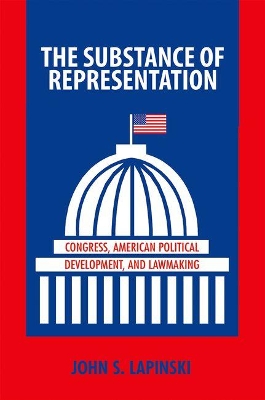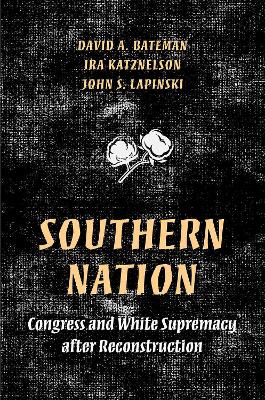Princeton Studies in American Politics: Historical, International, and Comparative Perspectives
2 total works
Relying on records of all Congressional votes since Reconstruction and analyzing voting patterns across policy areas from the late nineteenth to late twentieth centuries, Lapinski provides a comprehensive historical perspective on lawmaking in order to shed light on current practices. Giving a clear picture of Congressional behavior in the policymaking process over time, The Substance of Representation provides insights into the critical role of American lawmaking.
How southern members of Congress remade the United States in their own image after the Civil War
No question has loomed larger in the American experience than the role of the South. Southern Nation examines how southern members of Congress shaped national public policy and American institutions from Reconstruction to the New Deal-and along the way remade the region and the nation in their own image.
The central paradox of southern politics was how such a highly diverse region could be transformed into a coherent and unified bloc-a veritable nation within a nation that exercised extraordinary influence in politics. This book shows how this unlikely transformation occurred in Congress, the institutional site where the South's representatives forged a new relationship with the rest of the nation. Drawing on an innovative theory of southern lawmaking, in-depth analyses of key historical sources, and congressional data, Southern Nation traces how southern legislators confronted the dilemma of needing federal investment while opposing interference with the South's racial hierarchy, a problem they navigated with mixed results before choosing to prioritize white supremacy above all else.
Southern Nation reveals how southern members of Congress gradually won for themselves an unparalleled role in policymaking, and left all southerners-whites and blacks-disadvantaged to this day. At first, the successful defense of the South's capacity to govern race relations left southern political leaders locally empowered but marginalized nationally. With changing rules in Congress, however, southern representatives soon became strategically positioned to profoundly influence national affairs.

